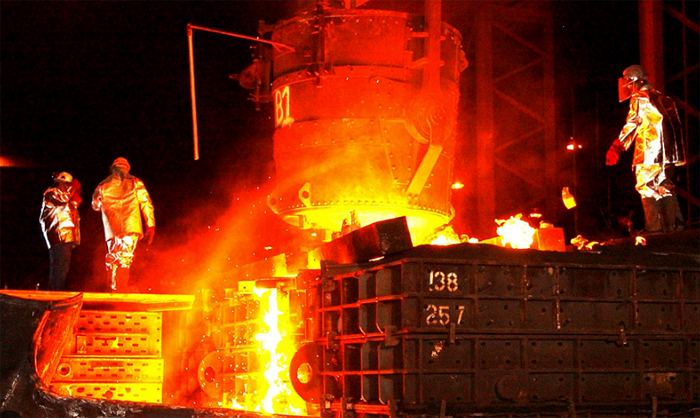
In the realm of steel production, the quest for enhanced mechanical properties, improved casting performance, and reduced environmental impact has driven metallurgists to explore innovative additives. Calcium alloys have emerged as a promising solution, offering a range of properties that contribute to the overall quality and efficiency of steel production. This article delves into the key properties of calcium alloys and their significance in the world of steel manufacturing.
Calcium alloys are renowned for their potent deoxidation and desulfurization capabilities. When added to molten steel, calcium reacts with oxygen and sulfur, forming calcium oxide (CaO) and calcium sulfide (CaS). These compounds readily combine with impurities, aiding in their removal as slag or floating inclusions. The deoxidation process prevents the formation of undesirable oxides in the final steel product, contributing to improved mechanical properties and a cleaner, more refined steel composition.
One of the critical roles of calcium alloys lies in inclusion modification. Inclusions are non-metallic particles that can adversely affect the steel's mechanical properties, leading to brittleness and reduced performance. Calcium-treated steel exhibits modified inclusions that are spherical in shape. These spherical inclusions are less likely to cause cracks or fractures, resulting in enhanced mechanical strength, ductility, and toughness of the steel.
The presence of calcium in steel can also promote grain refinement during solidification. Fine-grained structures offer improved mechanical properties due to the increased grain boundary area, which can hinder crack propagation and enhance the overall strength of the material. By facilitating the formation of finer grains, calcium alloys contribute to the steel's ability to withstand mechanical stresses and shocks.

Improved Castability:
Calcium alloys have a positive impact on the castability of molten steel. The modification of inclusions through calcium addition reduces the risk of clogging and erosion in casting equipment. This results in smoother casting processes, fewer defects, and improved surface finish of the final steel products. The enhanced castability not only streamlines production but also contributes to the overall aesthetic appeal and quality of steel components.
Environmental Benefits:
Beyond their metallurgical properties, calcium alloys offer environmental benefits. The desulfurization effect of calcium reduces the emission of sulfur dioxide, a harmful pollutant, during steel production. By curbing these emissions, calcium alloys contribute to a cleaner production process and a more sustainable steel manufacturing industry.
The properties of calcium alloys have propelled them to a prominent role in modern steel production. From deoxidation and desulfurization to inclusion modification and grain refinement, calcium alloys bring about a spectrum of advantages that enhance the mechanical performance, castability, and environmental footprint of steel products. As steel manufacturers continue to push the boundaries of innovation, calcium alloys stand as a testament to the enduring quest for superior steel quality and production efficiency.

Write a Message